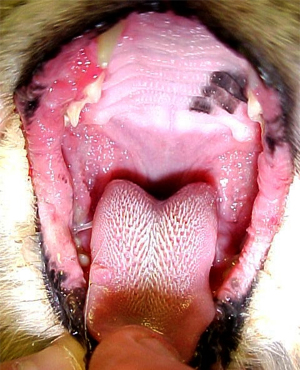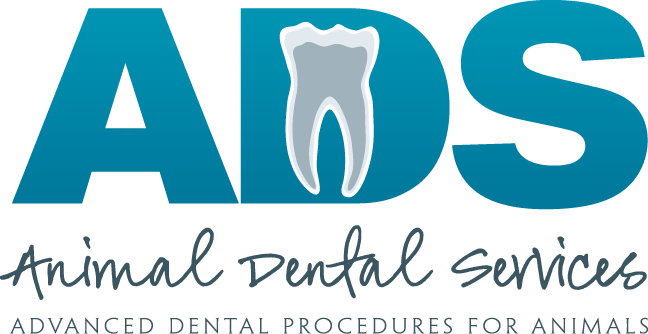Feline Stomatitis

Feline stomatitis
One of the most debilitating and frustrating diseases in cats is oral inflammatory disease, sometimes referred to as stomatitis, gingivostomatitis, or lymphoplasmacytic gingivostomatitis. It is sometimes seen in dogs and other species as well but we most often encounter the problem in cats.
Presentation
Affected cats have severe oral pain, and on examination may have inflammation and infection involving the gums, the lining of the inside of the lips and cheeks, the palate, and tongue, often extending down into the throat. Cats are reluctant to eat, they don’t groom well, and they often lose weight. Stomatitis has the ability to spread from one cat to another in multi-cat households and shelter/rescue situations.
Causes
Nobody really knows what causes this problem, but it seems to be an overreaction of the cat’s immune system to the plaque in the mouth. Many patients have certain viral and bacterial infections, but specific targeted treatments have not been widely successful.
Treatment
The ideal treatment would be meticulous plaque control, but cats with painful mouths rarely allow effective brushing and rinsing; flushes and water additives are not enough help, and nobody likes to have their pet anesthetized every 3 months for repeated cleanings. Antibiotics only help for a short time, and we worry about creating antibiotic-resistant superbugs over time.
Since it does appear to be an overreaction of the immune system, another strategy could be immune suppression with medications such as corticosteroids and cyclosporines. Daily administration of oral medications is difficult at best, and these immunosuppressive medications carry significant health risks, as well.
The most effective treatment continues to be extraction of all teeth. It is estimated that about 85% of cats will heal completely with no further need for medications (or brushing or teeth cleaning!) There are some cats that do need continued medication, and sometimes we will remove stubborn areas of inflammation with laser surgery. Often times, the cats that do not heal as well are those not treated until the disease is quite advanced, especially when it extends into the throat. For this reason, we recommend whole-mouth extractions sooner rather than later.
